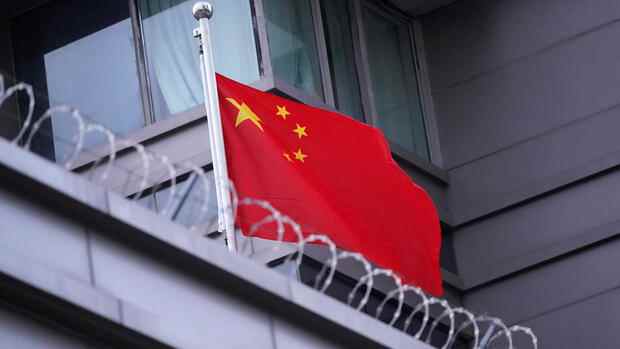In rare unity, all US politicians are trying to distance themselves from China as sharply as possible.
(Photo: AP)
There aren’t many issues on which Republican and Democrat voters agree. But dislike of China is one of them.
Industrial espionage, Corona, the treatment of the Uyghurs, the threats against Taiwan – all of this makes Chinese politics unpopular with the Americans. That is why both parties are trying to be as critical of China as possible in the election campaign for the midterms on November 8th.
Normally, foreign policy doesn’t play a big role in American election campaigns. But the China policy is an exception. “Both sides are trying to come across as tough as possible towards China,” observes political scientist Susan MacManus from the University of South Florida.
“China tops Americans’ list of least favorite countries,” she says. “Not least because of the problems with the supply chains, more and more people have realized how powerful China is now economically.” And that obviously brings with it concerns.
Top jobs of the day
Find the best jobs now and
be notified by email.
According to a September poll by polling firm Pew Research, 82 percent of Americans polled said they had an “unfavorable opinion” about China. In 2020 it was still 79 percent.
Biden continues Trump’s China policy
Former US President Donald Trump had made an important pillar of his policy from his tough course on China with punitive tariffs and a lot of rhetoric. Joe Biden didn’t really change much about this policy. On the contrary, he retained most of the tariffs, even though powerful institutions such as the US Chamber of Commerce had pushed for their abolition.
Just recently, Biden severely restricted the export of chips and the machines used to make them to China. In addition, with the so-called “Chips Act” enacted in August, he promotes the manufacture of semiconductors on domestic soil. And the Democratic House Speaker, Nancy Pelosi, even flew to Taiwan over the summer to show her solidarity with the island nation threatened by China.
After years of trying to come to terms with China, the US has clearly changed course. “The US and China are on a collision course with no exit ramps,” says economist and chief adviser to Unicredit, Erik Nielsen, after the recent export ban.
In the election campaign, those who can accuse the opponent of being too close to China can score points. Above all, the Republicans accuse Biden and his son Hunter Biden of personally benefiting from relations with China.
>> Read also: That’s what the two US parties say about the most important issues
In fact, Hunter Biden companies have received millions in consultant bonuses from CEFC China Energy, as the Washington Post newspaper, which is by no means close to Trump, has reported. However, Joe Biden himself has not received any payments afterwards.
On Donald Trump’s “Truth” social media network, cartoons are circulating under the hashtag #ChinaJoe of a smirking Biden with dollar bills in his hand and “China first” – in red letters with the C made of hammer and sickle.
In Pennsylvania, Mehmet Oz, the Trump-backed Republican Senate nominee, has made it clear that he will crack down on China: “President Trump has supported me because he knows I am America’s greatest fighter against communist… China will rise up,” he tweeted back in May.
China also plays a major role in individual local election campaigns for the Senate or the House of Representatives. For example, in the race for the Senate post in Ohio, Democrat Tim Ryan accuses investor JD Vance of doing business with China and moving jobs there.
“The economy, crime, abortion and Trump are what a lot of campaign ads are really going to be about,” Republican strategist Alex Contant told politics website Politico. “But when it comes to foreign policy, China will play a huge role,” he says. “If candidates have the opportunity to portray their opponents as weak against China, then they will do it,” he is convinced.
Asian Americans fear discrimination
Recently, for example, the fact that China is buying US agricultural land and agricultural groups such as the pork specialist Smithfield Foods has become an issue.
Many Asian-Americans are already concerned that anti-China rhetoric from the election campaign will go too far and turn into hatred for that demographic.
Together with the organization “Stop AAPI Hate” (Asian Americans and Pacific Islanders), Democratic MP Grace Meng presented the report “The Blame Game” just a few days ago. “Politicians have to be careful what they say” in the midterm campaign, Meng said. “We say that to the politicians of all parties.”
More: President Xi’s claims to omnipotence are a disaster for Europe’s companies.
